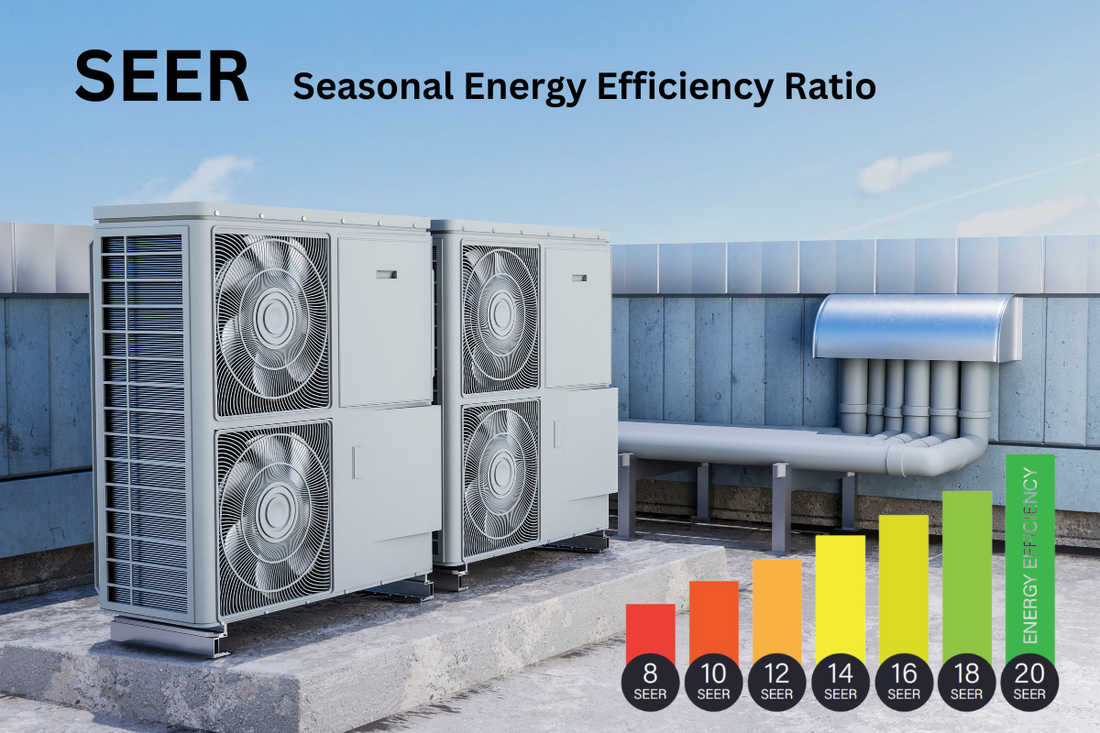
Understanding SEER Ratings: What They Mean for Your Air Conditioning Costs
Share
When investing in an air conditioning system, efficiency is a crucial factor to consider. The Seasonal Energy Efficiency Ratio (SEER) rating is a key metric that determines how efficiently an air conditioner operates over an entire cooling season. Understanding SEER ratings can help businesses and homeowners make informed decisions that impact both energy consumption and long-term costs.
What is a SEER Rating?
SEER stands for Seasonal Energy Efficiency Ratio. It measures the cooling output of an air conditioner divided by the total energy it consumes over a cooling season. A higher SEER rating means greater energy efficiency, resulting in lower energy bills and reduced environmental impact.
How SEER Ratings Impact Energy Consumption
The efficiency of an air conditioning unit is directly related to its SEER rating. Here’s what you need to know:
- Higher SEER = Lower Energy Costs: A unit with a SEER rating of 20 is twice as efficient as one with a SEER rating of 10, meaning it consumes half the electricity for the same cooling output.
- Better Climate Control: High-SEER units often include advanced features like variable-speed compressors, which enhance comfort by maintaining consistent temperatures.
- Environmental Benefits: Reduced energy consumption means a lower carbon footprint, making high-SEER units a greener choice.
Choosing the Right SEER Rating for Your Needs
Selecting the right SEER rating depends on various factors, including climate, usage patterns, and budget:
- Mild Climates: A SEER rating of 14-16 may be sufficient.
- Hotter Regions: Consider a SEER rating of 18 or higher to maximize savings.
- Commercial Use: Businesses with extensive cooling needs should opt for higher SEER ratings to reduce operational costs.
The Cost vs. Savings Balance
While higher SEER-rated air conditioners typically have a higher upfront cost, they offer significant savings over time. Consider:
- Energy Bill Reductions: The long-term savings on electricity often outweigh the initial investment.
- Rebates & Incentives: Many governments and utility companies offer rebates for high-SEER models.
- Longevity & Performance: High-efficiency units tend to have longer lifespans and require less maintenance.
Conclusion
Understanding SEER ratings is essential when choosing an air conditioning system. Higher SEER ratings lead to lower energy costs, improved comfort, and environmental benefits.
If you're looking to upgrade your air conditioning system, our friendly DS team is happy to help. Contact us on 02837511425 or email sales@ds-refrigeration.co.uk to learn more!
